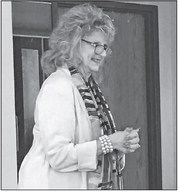CCEDC dues up for a vote in Abbotsford


Sheila Nyberg, the head of economic development and tourism in Clark County, gave Abbotsford’s city council a short refresher course last week on everything that her organizatio...


Sheila Nyberg, the head of economic development and tourism in Clark County, gave Abbotsford’s city council a short refresher course last week on everything that her organizatio...